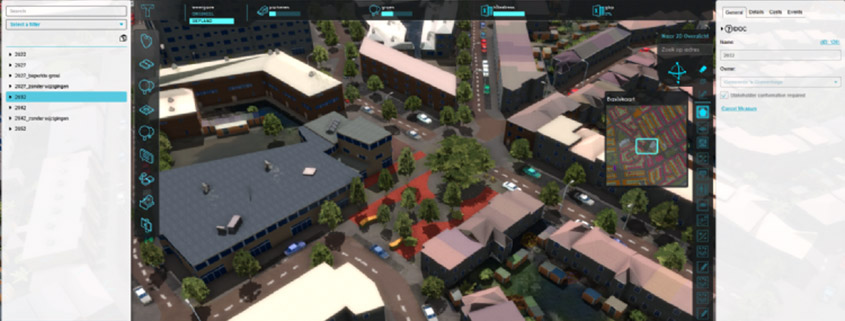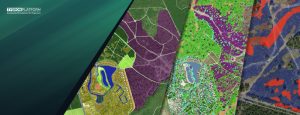GAES is a consultancy for greening and climate challenges, biodiversity objectives and social issues. Central to their data-driven concept is the role of ecosystem services. Ecosystem services include all goods and services that ecosystems provide to society.
GAES is committed to ensuring that municipalities implement policies in the field of Ecosystem Services. They offer an action plan that looks at issues such as social problems, biodiversity and heat stress reduction and set these services as the central goal of the specifications. The GAES approach presupposes a new, measured and monitored view of the design of public space.
In The Hague, the Goeverneurplein and Oltmansplein in the Laak district have been renovated using the GAES method in recent years. Because greenery needs time to grow, one should be cautious with the first conclusions. That is why people prefer to talk about the first ten to thirty years. So far the results have been successful. For example, the greenery is better than the remainder greenery in warm periods, so disconnecting the rainwater has had a positive influence. If you look at the past year and a half, there have been no losses in herbaceous plantings. A number of trees were removed and the remaining trees were given twenty cubic meters of The Hague tree soil and growing space. This allowed them to realize more crown surface area and made higher contributions to heat stress reduction and CO2 storage.
The Tygron Platform is one of the tools that GAES uses in its data-driven approach. GAES uses a smart combination of FME for data preparation and Tygron for analytical calculations. If you want to know more about this, you can watch the webinar below:
You can read more information about how the data-driven approach works, what the results have been so far and what the future of this system looks like in the full article (In Dutch):
https://www.stad-en-groen.nl/article/44088/datagedreven-aanpak-van-probleemwijken-blijkt-succesvol
Source: https://groenalseenservice.nl/2023/10/18/datagedreven-aanpak-van-probleemwijken-blijkt-succesvol/







